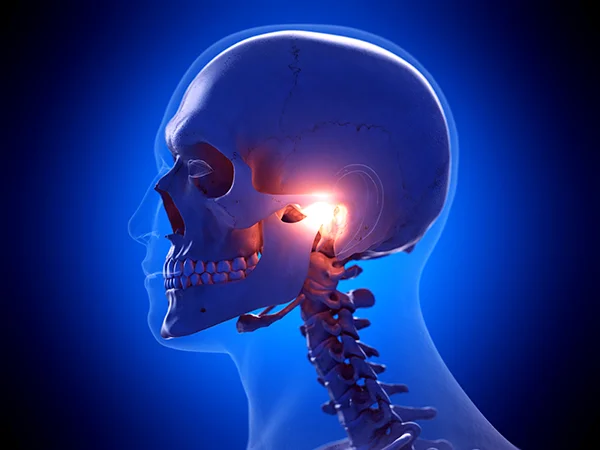Signs You Are a Nighttime Tooth Grinder
Posted on 8/15/2024 by Lakewood Dental Arts |
 Do you wake up with a sore jaw or a headache? Do you find yourself clenching your teeth throughout the day? If so, you may be grinding your teeth at night, a condition known as bruxism. Do you wake up with a sore jaw or a headache? Do you find yourself clenching your teeth throughout the day? If so, you may be grinding your teeth at night, a condition known as bruxism.
Nighttime teeth grinding is a common problem that affects millions of people. While it may seem like a harmless habit, it can actually lead to a number of serious dental problems, including:
| • |
Worn-down teeth: Over time, grinding can wear down the enamel on your teeth, making them more susceptible to cavities and chips. |
| • |
Jaw pain: The constant pressure of grinding can put a lot of strain on your jaw muscles, leading to pain and stiffness. |
| • |
Headaches: Grinding can also trigger headaches, especially in the morning. |
| • |
TMJ disorders: In some cases, bruxism can contribute to temporomandibular joint (TMJ) disorders, which can cause pain and difficulty chewing. |
If you think you might be grinding your teeth at night, it's important to see a dentist as soon as possible. They can diagnose the problem and recommend treatment options.
Common Causes of Teeth Grinding
There are a number of factors that can contribute to teeth grinding, including:
| • |
Stress: Stress is one of the most common triggers for bruxism. When you're feeling stressed, you're more likely to clench your jaw and grind your teeth. |
| • |
Anxiety: Anxiety can also lead to teeth grinding. If you're feeling anxious, you may subconsciously grind your teeth as a way to cope. |
| • |
Sleep disorders: Certain sleep disorders, such as sleep apnea, can also cause teeth grinding. |
| • |
Medications: Some medications can have side effects that include teeth grinding. |
| • |
Misaligned teeth: Teeth that are misaligned can put extra pressure on your jaw muscles, which can lead to grinding. |
| • |
Substance use: Alcohol and tobacco use can also increase your risk of teeth grinding. |
Signs and Symptoms of Teeth Grinding
Not everyone who grinds their teeth experiences symptoms. However, some of the most common signs and symptoms of teeth grinding include:
| • |
Worn-down teeth: This is the most obvious sign of teeth grinding. If you notice that your teeth are becoming shorter or flatter, it could be due to grinding. |
| • |
Jaw pain: You may experience pain or stiffness in your jaw muscles, especially in the morning. |
| • |
Headaches: Grinding can cause headaches, especially in the morning. |
| • |
Earaches: In some cases, grinding can cause pain in your ears. |
| • |
Loose teeth: Grinding can loosen your teeth over time. |
| • |
Sensitive teeth: Grinding can make your teeth more sensitive to hot and cold. |
| • |
Cheek biting: Some people who grind their teeth also bite the inside of their cheeks. |
How to Stop Grinding Your Teeth
There are a number of things you can do to stop grinding your teeth, including:
| • |
Stress management: Find ways to manage your stress, such as exercise, meditation, or yoga. |
| • |
Relaxation techniques: Before bed, try relaxation techniques such as deep breathing or progressive muscle relaxation. |
| • |
Mouth guard: A mouth guard can help to protect your teeth from grinding. |
| • |
Botox injections: In some cases, Botox injections can be used to relax the jaw muscles and reduce grinding. |
| • |
Dental treatment: If your teeth are misaligned, your dentist may recommend treatment to correct the problem. |
Conclusion
If you think you might be grinding your teeth at night, it's important to see a dentist as soon as possible. They can diagnose the problem and recommend treatment options. With proper treatment, you can stop grinding your teeth and protect your oral health.
|
|